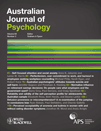
JOURNAL OF RESEARCH IN PERSONALITY
Scope & Guideline
Bridging Research and Real-World Applications in Personality
Introduction
Aims and Scopes
- Personality Trait Assessment:
The journal emphasizes accurate and innovative methods for assessing personality traits, including the use of multi-rater assessments, observer reports, and psychological scales. - Longitudinal and Cross-Cultural Studies:
It frequently publishes longitudinal studies that track personality development and change over time, as well as cross-cultural research that examines personality traits across different populations. - Interpersonal and Intrapersonal Dynamics:
Research on how personality traits influence interpersonal relationships, emotional regulation, and social behaviors is a significant focus, highlighting both individual differences and contextual factors. - Impact of Personality on Well-Being:
Many studies explore the relationship between personality traits and various aspects of well-being, including life satisfaction, emotional health, and resilience in the face of adversity. - Dark Personality Traits:
The journal has a consistent interest in the exploration of maladaptive personality traits, such as those represented in the Dark Triad, and their social and psychological implications. - Narrative Identity:
It also explores the role of narrative identity in shaping personality and well-being, examining how personal stories and life experiences influence self-concept and psychological functioning.
Trending and Emerging
- Digital and Social Media Influences:
There is an increasing focus on how personality traits influence and are influenced by digital behaviors and social media interactions, reflecting societal changes in communication. - Impact of Adversity on Personality Development:
Emerging research is examining how life adversities, such as the COVID-19 pandemic, affect personality traits and development, emphasizing resilience and adaptation. - Interdisciplinary Approaches:
There is a trend towards integrating insights from various disciplines, including neuroscience and behavioral economics, to enhance understanding of personality dynamics. - Personal and Social Identity:
Research exploring the intersection of personality with social identity factors, including gender, culture, and sexual orientation, is gaining prominence. - Complex Trait Interactions:
Studies examining the interplay between multiple personality traits and their collective impact on behavior and outcomes are increasingly common, reflecting a move towards more nuanced models. - Focus on Well-Being and Mental Health:
The journal is seeing a rise in research that connects personality traits with mental health outcomes, emphasizing the role of personality in psychological resilience and flourishing.
Declining or Waning
- Static Trait Models:
Research centered on static trait models of personality has become less prevalent, as the field increasingly recognizes the dynamic and context-dependent nature of personality. - Exclusively Trait-Based Research:
Studies that focus solely on traits without considering situational factors or interactions with other psychological constructs have seen decreased interest, reflecting a shift towards more integrative approaches. - Overemphasis on Traditional Big Five Traits:
While the Big Five personality traits remain important, there is a noticeable waning in research that exclusively focuses on them, with more studies exploring alternative frameworks and nuanced trait dimensions. - Reductionist Perspectives on Personality:
Research that simplifies personality to single traits or behaviors without considering the broader psychological context is declining, as more complex models gain traction. - Normative Comparisons of Personality:
The journal has seen a decline in studies that primarily compare normative data across populations, focusing instead on individual and contextual variability.
Similar Journals

Psychiatria i Psychologia Kliniczna-JOURNAL OF PSYCHIATRY AND CLINICAL PSYCHOLOGY
Empowering knowledge exchange in the realm of psychiatry.Psychiatria i Psychologia Kliniczna - Journal of Psychiatry and Clinical Psychology is a vital platform for advancing the fields of psychiatry and clinical psychology, published by Medical Communications in Poland. With its ISSN 1644-6313, this Open Access journal has been providing unrestricted access to impactful research since 2005, ensuring that findings in mental health are both accessible and disseminated widely. Although currently ranked in the Q4 quartile across Clinical Psychology and Psychiatry and Mental Health categories, and with the Scopus ranks placing it at 262/311 in Clinical Psychology and 493/567 in Psychiatry, the journal serves as a crucial resource for researchers seeking to explore innovative methodologies and therapeutic interventions. The journal's aim is to enhance understanding and treatment of psychiatric disorders by facilitating the exchange of knowledge between academia and clinical practice. As it converges from 2006 to 2024, Psychiatria i Psychologia Kliniczna remains committed to publishing high-quality articles that contribute toward the evolving landscape of mental health research.

JOURNAL OF PERSONALITY DISORDERS
Pioneering Research for Mental Health ProfessionalsThe JOURNAL OF PERSONALITY DISORDERS, published by Guilford Publications Inc., stands as a leading academic resource in the field of clinical psychology and psychiatry, showcasing some of the most influential research on personality disorders since its inception in 1987. This esteemed journal, identifiable by its ISSN 0885-579X and E-ISSN 1943-2763, garners significant recognition, with a notable impact factor supported by its rankings in Scopus—placing it in the top quartiles of both Clinical Psychology (Q1) and Psychiatry and Mental Health (Q2). With a comprehensive focus that spans systematic reviews, empirical studies, and theoretical discussions, the journal aims to enhance the understanding, assessment, and treatment of personality disorders. Researchers, mental health professionals, and students alike are encouraged to engage with this journal to stay abreast of groundbreaking findings and trends that shape contemporary practice.

DREAMING
Pioneering Research in the Psychology of DreamsDREAMING is a prominent peer-reviewed journal published by the Educational Publishing Foundation of the American Psychological Association, dedicated to advancing the understanding of the psychology of dreams. With an ISSN of 1053-0797 and an E-ISSN of 1573-3351, the journal has established itself as a critical resource in the field of psychology since its inception in 1996. Covering a broad range of topics within the realm of dreams, it aims to foster interdisciplinary research and dialogue among scholars, practitioners, and students. Listed in the Q2 category for miscellaneous psychology and holding a respectable Scopus rank of #101 out of 216, the journal underscores its significance within the academic community, making it an invaluable platform for disseminating innovative research and theories. Although it operates under a traditional access model, the content is accessible to a wide audience interested in the cognitive and emotional complexities of dreaming. As we look forward to continued exploration in 2024 and beyond, DREAMING remains committed to enhancing our understanding of this fascinating area of psychological study.

Personality Disorders-Theory Research and Treatment
Transforming clinical approaches through rigorous research.Personality Disorders: Theory, Research, and Treatment, published by the Educational Publishing Foundation of the American Psychological Association, is a leading academic journal dedicated to the advanced study of personality disorders and their implications in clinical psychology. With an ISSN of 1949-2715 and an E-ISSN of 1949-2723, this journal boasts a significant impact in its field, reflected in its Q1 ranking in both Clinical Psychology and Medicine, and its strong performance in Psychiatry and Mental Health, particularly with Scopus rankings placing it in the top percentiles. This journal serves as an essential resource for researchers, clinicians, and students by offering a platform for innovative research, evidence-based treatment approaches, and theoretical developments in understanding personality disorders. Although it does not currently operate as an Open Access journal, it plays a crucial role in disseminating high-quality academic contributions that impact clinical practices and mental health policies in the United States and beyond. Engage with the forefront of psychological research and contribute to the evolving discourse surrounding personality disorders.

AUSTRALIAN JOURNAL OF PSYCHOLOGY
Shaping the future of psychology with groundbreaking research.The Australian Journal of Psychology, published by Taylor & Francis Ltd, is a premier peer-reviewed academic journal dedicated to the diverse field of psychology. With its esteemed history dating back to 1949, this journal has evolved into a critical platform for disseminating innovative research and insights across various psychology disciplines. As of 2023, it holds a prestigious Q1 ranking in miscellaneous psychology, reflecting its significant impact within the academic community. The journal is indexed in Scopus, ranking #45 out of 216 in general psychology, placing it in the 79th percentile. Since embracing an Open Access model in 2022, it enhances the visibility and accessibility of cutting-edge research to a global audience, making it an invaluable resource for researchers, professionals, and students alike. With a commitment to excellence, the Australian Journal of Psychology continues to foster scholarly dialogue and contribute to the advancement of psychological science.

Social and Personality Psychology Compass
Exploring the Depths of Human BehaviorSocial and Personality Psychology Compass, published by WILEY, stands as a leading voice in the realm of social psychology, achieving a commendable Q1 ranking in the 2023 category assessments. With an E-ISSN of 1751-9004, this journal serves as a significant platform for the dissemination of cutting-edge research and scholarly discourse, covering various facets of social and personality psychology. Since its inception in 2011 and with a convergence extending until 2024, it has continually featured innovative studies and critical reviews that shape contemporary understanding in the field. As a highly regarded resource, ranked 75th out of 310 in the Scopus database, Social and Personality Psychology Compass caters to a diverse audience of researchers, professionals, and students, fostering an environment for academic growth and collaborative exploration in psychology. Although it does not currently offer open access, the journal remains dedicated to ensuring broad availability of its impactful findings.

JOURNAL OF CLINICAL PSYCHOLOGY
Leading the Charge in Clinical Psychology AdvancementsThe JOURNAL OF CLINICAL PSYCHOLOGY, published by Wiley, has been a pivotal resource in the field of psychological research since its inception in 1945. With an impressive impact factor and classification within the Q1 category for both Arts and Humanities and Clinical Psychology, it ranks prominently at #54/552 in Arts and Humanities and #71/311 in Clinical Psychology according to Scopus, placing it in the top percentiles for both categories. The journal primarily serves as a platform for disseminating groundbreaking research, theoretical advancements, and practical applications pertinent to clinical psychology, making it indispensable for researchers, clinicians, and scholars dedicated to enhancing mental health practices. Although not an open-access journal, it provides critical insights and methodologies that are fundamental for professionals navigating the complexities of clinical psychology today. With a commitment to advancing understanding and treatment of psychological disorders, the journal continues to shape outcomes in mental health and therapeutic practices.

JOURNAL OF PERSONALITY AND SOCIAL PSYCHOLOGY
Connecting Minds: Where Personality Meets SocietyJournal of Personality and Social Psychology, published by the American Psychological Association, stands as a premier resource in the fields of social psychology and sociology, offering critical insights into the dynamics of human behavior and interpersonal relationships. With an impressive impact factor and ranked in the top tier of academic journals—Q1 in both Social Psychology and Sociology & Political Science—it consistently attracts high-caliber research submissions that advance theoretical and practical knowledge. Established in 1965, this journal has become a cornerstone for scholars and practitioners alike, facilitating the dissemination of pivotal studies in understanding social influences and individual personalities. As a key player in its field, it is essential reading for anyone involved in psychological research, providing a platform for innovative ideas and comprehensive analyses. Despite its subscription-only access model, its influence is reinforced by its consistently high rankings on Scopus, underscoring its significance by being in the 98th percentile for sociology and the 97th percentile for social psychology. Academics looking to delve into transformative concepts around personality and social interactions will find Journal of Personality and Social Psychology an invaluable addition to their resources.

JOURNAL OF SOCIAL AND CLINICAL PSYCHOLOGY
Disseminating Knowledge for a Healthier TomorrowJOURNAL OF SOCIAL AND CLINICAL PSYCHOLOGY, published by Guilford Publications Inc, serves as a leading platform in the fields of psychology, specifically within both social and clinical sub-disciplines. Established in 1996, this journal provides critical insights and disseminates new research findings that inform theory and practice, making it an essential resource for academics, clinicians, and students alike. With its Q2 ranking in both Clinical and Social Psychology categories, this journal not only underscores the significance of its contributions but also reflects its standing among a competitive pool of scholarly journals. Although the journal is not open access, it maintains a rigorous peer-review process ensuring the publication of high-quality research. Scholarly articles aim to bridge the gap between empirical research and clinical application, ultimately impacting mental health practices and social understanding. Given its comprehensive scope, the journal promises continuing relevance and engagement for those dedicated to the advancement of social and clinical psychological sciences.

Psychology of Leaders and Leadership
Diving Deep into the Psychology of LeadershipPsychology of Leaders and Leadership is a pioneering journal published by the American Psychological Association (APA), dedicated to advancing the understanding of leadership dynamics through the lens of psychology. With the ISSN 2769-6863 and E-ISSN 2769-6898, this journal serves as a vital platform for researchers, practitioners, and students exploring the cognitive and emotional components that shape effective leadership. Although this journal is not Open Access, it embraces a multidisciplinary approach, providing insightful research articles, theoretical papers, and case studies that delve into the complexities of leadership behavior across diverse contexts. The journal's objective is to bridge psychological theory with real-world leadership practices, making it indispensable for anyone pursuing expertise in organizational behavior, management, and psychological studies. With its focus on empirical findings and practical applications, Psychology of Leaders and Leadership stands as an essential resource for enhancing leadership effectiveness and fostering transformative organizational change.